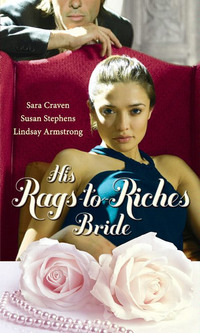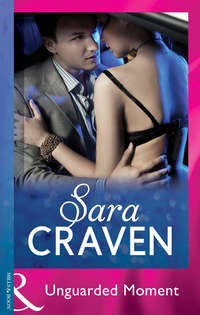
Полная версия
The Virgin's Wedding Night
Penniless artist he might be, but at the same time he looked tough and uncompromising, and it occurred to her suddenly that perhaps it might have been better if the blonde had remained after all.
Or if I’d stayed away…
The thoughts seemed to be chasing each other through her skull.
‘I asked why you were here,’ he said. ‘And I am waiting for your answer.’
That jolted her back to the here and now. Needled her into response too.
She lifted her chin. ‘Can’t you guess the reason?’ She took the crumpled ball of paper from her pocket, and threw it at him. It didn’t reach its target, dropping harmlessly to the floor between them, and he didn’t waste a glance on it.
‘You were so impressed with the likeness that you came to commission a portrait, perhaps?’ His tone was silky. ‘If so, I must refuse. I doubt if I could summon up sufficient inspiration a second time.’
‘Don’t worry.’ Her own voice grated. ‘I have no plans to feature as a subject for you ever again. I came for an apology.’
His brows lifted. ‘An apology for what?’
‘For that.’ She pointed at the ball of paper. ‘That—thing you left for me.’ She drew a swift, sharp breath. ‘Do you know how many people work in that building—and use that entrance? And you had the damned nerve to put that—insulting, libellous daub where everyone would see it. Make me into a laughing stock. And you did it quite deliberately. Don’t try to deny it.’
He shrugged. ‘Why should I?’
‘And don’t pretend it was only a joke, either. Because, if so, it was in bloody poor taste.’
‘It was no joke,’ he said, and there was a note in his voice that gave her the odd sensation that her skin had been laid open by a whip. ‘And nor was your attempt to have me moved on by your security guard, as if I was guilty of some crime. And in front of a crowd of people, too.
‘Humiliation does not appeal to me either,’ he added grimly. ‘Although I must tell you that your plan misfired, because no one laughed. They were all embarrassed for me, including your guard. And several of them sprang to my defence.’
He paused. ‘It is interesting that you did not expect your colleagues to be equally supportive,’ he went on bitingly. ‘But, at the same time, it is hardly surprising if this is a sample of the tactics you use in your workplace. Perhaps they would have recognised my portrait of you only too well.’
She felt as if she’d been punched in the guts, and, for a moment, she could only stare at him in silence. Then, she forced herself to rally. To fight back. ‘You had no right to be there, opposite our offices.’
‘I have been sketching there all week,’ he said. ‘No one from your company or any other has complained before.’
‘That,’ she said, ‘is because I never saw you there before.’
‘Then I can be thankful for that, at least.’
She bit her lip. ‘Anyway, beggars deserve to be moved on. You were causing an obstruction.’
‘I was not begging,’ he said stonily. ‘I was earning honest money, giving pleasure by my sketching. But I guess that pleasure is not something you would readily understand, Miss Harriet Flint.’
She gasped. ‘How do you know my name?’
He shrugged. ‘In the same way that you learned where I live. I was told by Luigi Carossa. He telephoned to say you were planning to pay me a visit.’ His mouth curled. ‘He even thought it might be to my advantage. I did not disillusion him.’
He paused. ‘Now, if there is nothing further, perhaps you would leave.’
It was difficult to breathe. ‘Is that—is that all you have to say?’
‘Why, no.’ The dark eyes swept over her contemptuously. ‘There is also this. Go back to your fortress, Miss Flint, and practise giving more ridiculous and high-handed orders. If you cannot make yourself liked, you can at least attempt to feel important. I hope it is some consolation.’
He kicked the ball of paper towards her. ‘And take this with you as a reminder not to over-reach yourself again. This time you escaped lightly, but next time you may indeed find yourself the office joke.’
The world seemed to slip away from her. ‘Lightly?’ she repeated dazedly. Then, her voice rising, ‘You said—lightly?’
She didn’t lose her temper as a rule. She had too many bad memories from early childhood of voices shouting, the sound of things being thrown, even occasional blows, and her mother’s loud, hysterical weeping as yet another relationship bit the dust.
She’d always prided herself on being able to control her anger. To hide any negative emotions and deal with them calmly and sensibly.
But for most of today she’d been on the edge and she knew it.
And now she felt as if something deep inside her had cracked open at his words, and all the pain, the anxiety and disappointment of the last weeks had come welling to the surface in one violent, cataclysmic surge that she was unable to repress.
A voice she didn’t recognise as her own screamed, ‘You utter bastard…’ And she flung forward, launching herself wildly at him, hands curled into claws, striking at his face. Wanting to hurt him in return.
As she made contact, she heard him swear, then her wrists were seized in a punishing grip, and she was forced away from him, held at arm’s length as the dark eyes raked her mercilessly.
His voice was harsh and breathless. ‘You do not hit me—understand? You will never do so again, or I shall retaliate in a way you won’t like.’
She tried to stare back defiantly, to twist free of his grasp, but his hold was relentless. And then she saw the smear of blood on his cheekbone and suddenly the enormity of what she’d done overwhelmed her.
She attempted to speak, but the only sound that escaped her was a choking sob, and the next instant she was crying in a way she’d never done before—loudly and gustily, all control abandoned, as the scalding tears stormed down her face.
He said icily, ‘And now the usual woman’s trick—weeping to get out of trouble. You disappoint me.’
He took her over to the sagging sofa at one side of the room, and pushed her down on to the elderly velvet cushions, tossing a handkerchief into her lap.
She was aware of him moving away, as another paroxysm shook her, and she buried her wet face in the soft square of linen. She could hear him moving about, followed by the chink of a bottle on glass, and then he was back, seating himself beside her, closing her fingers round a tumbler.
‘Drink this.’
She tried to obey, but her hand was trembling too much.
He muttered something she did not understand, and raised the glass to her lips himself.
As the pungent smell reached her, Harriet recoiled. She said, her voice drowned and jerky, ‘I don’t drink spirits.’
‘You do now.’ He was inexorable.
She took one sip, and it was like swallowing liquid fire. She felt it burn all the way to her stomach, and flung her head back as he offered the glass again, saying hoarsely, ‘No more—please.’
He put the glass down on the floor. ‘So,’ he said. ‘This is more than just a drawing. What has happened to you?’
‘Nothing that need concern you.’ She scrubbed fiercely at her face with the handkerchief, trying to avoid looking at him directly. However, she was immediately aware that he was a little more dressed now than he had been before, in that he’d fastened the waistband of his jeans, pulled on another disreputable tee shirt, and had a pair of battered espadrilles on his feet.
But if this was a concession, it was a very minor one. It didn’t make him appear any more civilised, or encourage her to feel any better about the situation. Or about him.
Oh, God, she thought with something like despair. What could have possessed her to do such an appalling thing? To have—flown at him like that, whatever the provocation. Then, worst of all, to have allowed herself to break down, and wail like a baby. How could she have behaved like that? It was as if she’d changed into a completely different person. And she wanted the old one back.
‘But I am concerned.’ He touched the mark on his cheek with a fingertip. ‘See—I’m scarred already.’
‘I’m—sorry,’ she offered stiffly. And she was—but for letting herself down—not for hurting him. In fact, she wished she’d connected with her fist, instead of just a fingernail.
He gave her a sardonic look, as if he knew exactly what was going through her mind. ‘A suggestion,’ he said softly. ‘Next time you’re in scratching mood, my little tigress, make it my back, and not my face.’
As the implication in his words sank in, her face warmed with a blush she was powerless to prevent. Her fingers tightened, crushing the handkerchief into a damp ball. She needed to get out of there, she thought, before she embarrassed herself even further—if that were possible.
‘I—I must be going.’ She kept her voice artificially cool and clipped. ‘I’ve a cab waiting for me.’
‘I doubt that,’ he said. ‘But stay where you are, and I’ll check if it’s still there.’
She watched him go to the door with that lithe long-legged stride that she’d noticed in the restaurant. A realisation that disturbed her. And with his departure an odd stillness descended, as if the energy in the room had somehow gone with him.
He was, Harriet thought with a shiver, altogether too physical a presence. And it occurred to her that maybe she had got off lightly, after all.
On impulse, she pushed back the sleeves of her jacket, scanning her wrists and forearms for the marks of his fingers, but there were none, which surprised her. Although she could not speak, of course, for the emotional bruising she’d suffered.
But don’t think about that, she told herself. Just concentrate on getting out of here.
She glanced around for her bag, and saw it lying where she’d dropped it, the contents spilling out across the floorboards, with the laptop case beside it. She crossed the room shakily, knelt and began to repack her bag. She’d check on the computer when she got home, but hopefully the outer padding would have saved it from serious damage.
As she rose, brushing off her skirt, she hesitated, taking another, closer look at her surroundings, and particularly at the paintings leaning against the walls that she’d seen on the periphery of her vision when she arrived.
And, as she soon realised with an odd excitement, they certainly repaid more thorough attention.
The majority of the paintings were abstracts, wild, ungovernable masses of colour applied to their canvases with an almost violent intensity, and, to Harriet, they were like experiencing an assault to the senses.
She went from one to another, aware that her arms were wrapped tightly round her body, as if she was warding off some danger. Knowing that, whether she liked them or not, they were impossible to ignore. She was being drawn to them unwillingly, she thought. Fascinated in spite of herself.
And there were landscapes too—bleak stretches of ochre-coloured earth, more bleached stones like the fallen columns of dead buildings, hard glittering sand bordering a dark and ominous sea. All battered by the light of that same brilliant and relentless sun that she’d seen in the original painting.
And that same sense of anger, barely contained, that she’d found emanating from him only a short while ago.
But this time no human element in any of the paintings. No trace that anyone had ever inhabited these alien environments.
They were raw—they were vital. But they belonged to no comfort zone that she knew. She could not imagine hanging one of them on the plain neutral walls of her determinedly minimalist flat. Or living with it afterwards, come to that.
She suddenly remembered a book she’d read as a child, where the young heroine stepped through the pictures in the gallery of an old house to find herself in the world they portrayed.
But to walk into the kind of barren burning wilderness that confronted her now would be a terrifying leap into the unknown—with the possibility that she might never be able to find her way back again. That she’d be trapped for all eternity in some living nightmare.
She shivered suddenly. My God, she thought in swift self-derision, am I letting my imagination run away with me here?
And it was no excuse to tell herself that it was sheer overreaction, because she’d been knocked sideways emotionally in all kinds of ways. Because the sheer power of these paintings could not be dismissed so easily.
He said, ‘Your taxi’s gone. But I called a local cab company. They are on their way.’
She whirled around as his voice reached her, her hand going to her mouth to stifle her startled cry. Because she’d had no idea he’d come back into the studio. Been far too absorbed to register his approach.
But he was there, leaning against the frame in the sunlit doorway, one hand negligently hooked in the waistband of his jeans, the other holding his mobile phone as he watched her.
Harriet snatched at what was left of her composure. She said stiltedly, ‘Oh, right—thank you.’ Then paused. ‘I’ve been looking at your work. It’s—good.’ She recognised the lameness of that, and added hastily, ‘In fact, it’s probably far more than just good. It might be—amazing.’
‘Does this signal that you are changing your opinion about me?’ His mouth twisted mockingly. ‘I’m flattered.’
‘Well, don’t be,’ she returned curtly. ‘I may recognise you have talent, but it doesn’t follow that I have to like you any better.’
He winced elaborately. ‘I see that the flood of tears was a temporary aberration. The real Miss Flint is back, and firing on all cylinders.’
‘What I don’t understand,’ she went on, as if he hadn’t spoken, ‘is why you waste a moment of your time on those street portraits. They can’t bring in enough money to pay the bills.’
‘No,’ he said. ‘I look on them mainly as relaxation. It’s good to get out sometimes—to meet new people. Don’t you agree?’
She remembered the entranced face of the girl he’d been sketching outside the Flint Audley offices.
She looked round the big room, deliberately letting her glance linger on the pile of papers that had fallen off the sofa, the remains of a meal left on a table, the unmade bed, only half hidden behind a large folding screen. She said, ‘And is this where you bring—your new friends?’
His tone was laconic as he followed her gaze. ‘It’s the maid’s day off.’
‘Then perhaps you should ask your girlfriend to clear up a little.’ Her response was immediate—tart—and completely unintentional. After all, she’d already made her point.
‘She does not come here for that,’ he said gently. ‘Also, she might spoil her beautiful hands, and I can put them to much better use.’
And no prizes for guessing what he meant, Harriet thought furiously, her face warming all over again in spite of herself. She said stonily, ‘I always understood decent men did not kiss and tell.’
He shrugged, unrepentantly. ‘Who mentioned kissing?’ and laughed softly as her flush deepened.
He glanced over his shoulder as a car horn sounded from the street. ‘And that is your cab, Miss Flint,’ he added with studied politeness. ‘Right on time.’ And stood aside to let her pass.
Harriet found herself clinging to the rail of the metal staircase as she descended, aware that her legs were shaking, and that she was strangely breathless again.
As she crossed the yard, she looked back swiftly, almost furtively, to see if he was watching her go. But the staircase was empty, and the door was closed.
And for one confused, disturbing moment, Harriet did not know whether to be glad or sorry.
CHAPTER THREE
HIS handkerchief was a small, forlorn bundle in the middle of her gleaming ash table.
Harriet’s instinct was to chuck it straight in the kitchen bin, possibly slamming down the lid as a coda, but she had to admit that current evidence suggested he might not have handkerchiefs to spare, and that it would be more gracious to return the damned thing laundered.
That was if she felt gracious.
And at the moment, in the seething maelstrom of her emotions, bewilderment seemed to predominate. Alongside anger.
She sank down into her black kid recliner chair, closing her eyes and allowing her whole body to go limp, while she breathed deeply and evenly, trying to recapture a modicum of calm and sanity.
She could not believe how her life had suddenly changed.
Twenty-four hours ago, she’d looked at the future with a kind of quiet confidence. She’d been about to take the next step up the ladder at Flint Audley, and she’d found a working solution to her grandfather’s autocratic and ill-judged attempt to force her into matrimony.
Like the horse being led to water, she would get married. But not even Gregory Flint could force her to stay married, she’d told herself grimly. That was not part of the deal. Nor had he specified how long this unholy wedlock would have to last. But he could hardly insist she stayed in an unhappy relationship, especially if he believed his ultimatum was the root case of her misery.
Something she’d planned to make bravely and wistfully clear. How she’d been rushed into a terrible mistake.
Or that had been her intention, she thought bitterly.
Her precious, foolproof plan. Now wreckage.
The rung on the corporate ladder. Broken.
Oh, the expansion scheme would go ahead, but possibly not under her direction, however hard she worked on it. And maybe if there was a glass ceiling, Gramps had ordered its installation.
I wouldn’t put it past him, she thought bleakly.
Perhaps she should have succumbed to the inevitable—picked one of the paralysingly dull but worthy young men who’d been regularly trotted out at dinner parties for her inspection. At least she’d have had the prospect of Gracemead as consolation.
But would that have been enough to reconcile her to the reality of marriage? Somehow she doubted it. She valued her independence too highly. Child as she’d been, she could remember only too well her mother’s unavailing attempts to revive relationships that had clearly exceeded their shelf lives.
Maybe it was then that she’d realised the danger of being at the mercy of her hormones, she thought wryly.
And while life could be lonely at times, especially as most of her schoolfriends now seemed to have husbands and, accordingly, other priorities, at least she was at no one’s beck and call when work was over. When her time became her own, along with her personal space.
And her time was now wasting.
She got up, and went into her bedroom, feeling her usual lift of satisfaction as she looked around her. All the furniture was built-in, and concealed behind anonymous doors, so the focal point was the bed. She’d picked the biggest she could find, with the most heavenly mattress, and dressed the whole thing in ivory linen, with olive green cushions adding the only colour note, one which she’d repeated in the shades of the lamps on the twin night tables flanking the bed.
The bathroom was equally austere in white and chrome, but she hadn’t stinted on the size of the tub, or the walk-in shower, and particularly on the pile of fluffy towels that were always waiting.
She undressed slowly, dropping her clothes into the linen basket, loosened her hair from its constricting band, and stepped under the fierce pelting of the shower, first smothering herself in her favourite scented body wash. How wonderful, she thought, as she turned herself languorously under the warm torrent, if the troubles of the day could be as easily rinsed away as this foam.
She dried herself, and put on a pair of her favourite pyjamas. She had a whole range of them, tailored in satin in cool pastel shades, and obtained from an exclusive mail order source, and tonight’s choice was pale turquoise.
She padded barefoot into her gleaming kitchen, taking a ready-cooked chicken breast from the fridge, preparing a dressing for the accompanying salad, and heating a small baguette. If she wanted dessert, there was always yoghurt.
As she ate, she pondered what she could put in tomorrow’s report for Tony. Nothing, for sure, that would sound like an excuse, or make it sound as if she wasn’t up to the job. She’d believed until today that they had a good working relationship based on mutual respect. Now it seemed as if he’d just been waiting for her to screw up.
Well, she was not so easily to be set aside, she told herself defiantly. She would fight, and fight again, and to hell with glass ceilings.
Because iron had entered her soul that afternoon, when she’d discovered what people really thought about her, and now she no longer merely wanted to take charge of the expansion plans. No, she wouldn’t be content now until she held the position her grandfather had once enjoyed—as chairman of the board.
At which point, they’d be laughing on the other side of their faces.
Her meal ended, she put on some Mozart and set to work, drafting and re-drafting the report for Tony until she was reasonably satisfied. She kept it short and pithy, maintaining the basic value of the scheme, but admitting she’d failed to gauge the level of opposition it might garner. That she felt this had been based on personalities rather than actual reasoning, and that next time she would ensure that opinion was more informed, so that there could be a genuine debate.
Then she printed it off, closed down her laptop, and sat back with a sigh, closing her eyes.
One rock shifted, hopefully, but a massive boulder still to go.
Keeping her job might be one thing. But hanging on to Gracemead was quite another, especially when her grandfather’s deadline was coming nearer by the day.
She supposed she could always try another small ad on one of the dating pages, then recalled with a grimace just how long it had taken to extract Peter from among the welter of total unsuitables who’d responded. None of whom she’d wish to encounter a second time.
Also, she had to be careful. If, by some remote but fatal chance, anyone at work found out or even suspected what she was trying to do, her life would become completely unbearable. And outside work she never met any men. Apart, of course, from today…
She sat up with a jolt, as if several hundred volts of electricity had suddenly passed through her, her mind going into overdrive.
Then stopped, as she remembered contemptuous dark eyes. A voice that dripped scorn. And took a deep breath. No, she thought, that’s nonsensical. That’s carrying the whole thing to the limits of absurdity. Don’t even consider it.
But the idea refused to go away. It nagged at her for the remainder of the evening, and even followed her to bed, where she lay, staring sleeplessly into the darkness as she continued to argue with herself.
On the face of it, she and this Roan had nothing in common, except their mutual antipathy. But he needed a boost to his career as an artist, which she might—just—be able to supply. And he was a good painter. He had a real gift. Whatever her personal opinion of him as a man, she was certain of that at least.
And if she was prepared to help him, she was surely entitled to ask for his assistance in return, even though she could guess his probable reaction when he learned the details, she thought, wincing.
But she’d simply have to stress that their dislike of each other was a positive advantage under the circumstances. And that any acceptance of her terms would be strictly business.
After all, she told herself grimly, she didn’t want that appalling male arrogance, which seemed as natural to him as breathing, to persuade him for one second that she found him even remotely attractive.
His pretty blonde might be a snag, of course, but she could hardly raise any real objections to the scheme, as she was married herself.
And as she turned over, punching the pillow into submission, a name came floating into her mind, reminding her of someone in the art world she might approach. ‘Desmond Slevin,’ she murmured with drowsy satisfaction, and closed her eyes, smiling.








